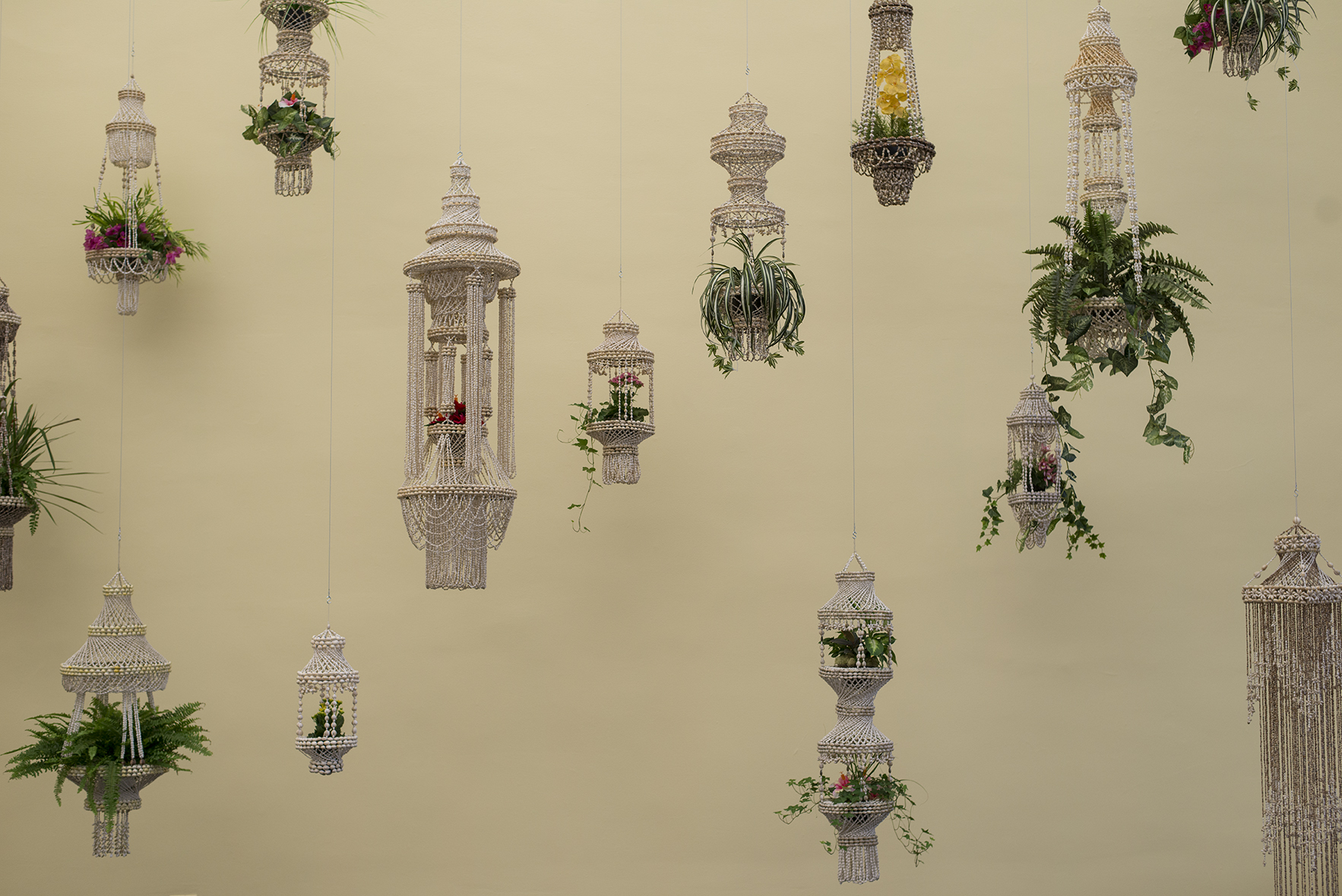Carlos Rolón—a.k.a. Dzine—has a way of transforming his experiences growing up in Chicago’s Brighton Park neighborhood into opulent sculptures and installations. “I Tell You This Sincerely…,” his first solo exhibit in Chicago in a decade (at the Cultural Center through July 31), proves Rolón as an artistic force whose works get to the heart of middle-class immigrant identity. Earlier this month, Rolón shared the stories behind his new artworks with Chicago.

“My mother had macramé all over the house in the 1970s,” says the artist. The floating garden of 28 plant sculptures, surrounding benches, recall the semi-private gardens where Rolón would hear the family gossip being shared. The work is called "Bochinche," or "gossip" in Spanish.

The broken glass painting was inspired by “walking on my street in Brighton Park as a teenager and seeing all these cars busted out, with glass on the pavement, and their stereos stolen,” says Rolón. “But if you really look at it, the shattered, tempered glass is beautiful. People don’t want to admit it’s a beautiful material because it’s a violent thing.”

“Trophy Den is a love letter to my father,” says Rolón of the installation built to resemble the artist’s childhood basement where he watched boxing on TV with his dad. “Boxing was a way to connect with my father when I was a child. I didn’t even care about boxing. I just wanted to hang out with my dad on a Saturday afternoon.” (Now, as an adult, Rolón is a huge fan of boxing.)

“Many artists have used boxing as a metaphor,” says Rolón, who created a book about boxing and art that visitors can read at the exhibit.

"These are trophies for people whose dreams have been deferred,” says Rolón of the Trophy Den, a room full of hand-crafted trophies he made as an homage to U.S. immigrants. “My mom wanted to be a beautician but ended up working at Jewel and retiring, and she loved it. My father wanted to be a salsa musician but ended up working at a factory. This is what they had to do to survive and raise a family."

“Moments like this never fail”—the phrase etched into a mirror was also tattooed on artist Dash Snow, who died at age 27. “It’s a nod to the way he lived life,” says Rolón.

A life-sized street vending cart—the kind you’d see in a food desert—memorializes the men who provide and sell goods to the community. “I grew up in a Polish neighborhood that turned Latino,” says Rolón. “I remember the corner street vendors,” who were anchors of the community.

The cart sells everything from bus passes to pillows to bootleg brand-name purses. Rolón calls its proprietor “Hustle Man.” The sculpture is a monument to him. “Hustle Man literally is the American dream. He’s making it happen in his own way,” he says.



